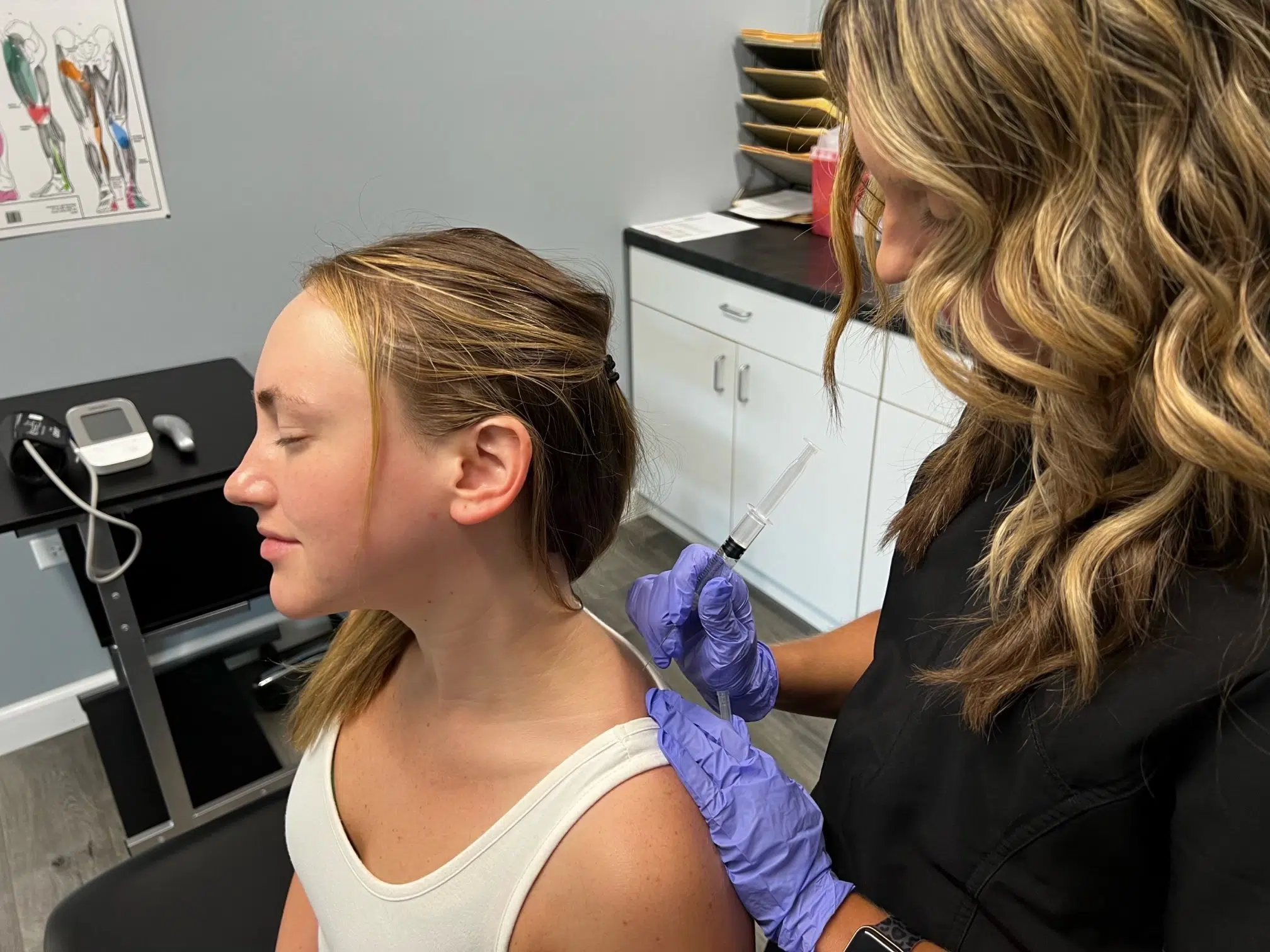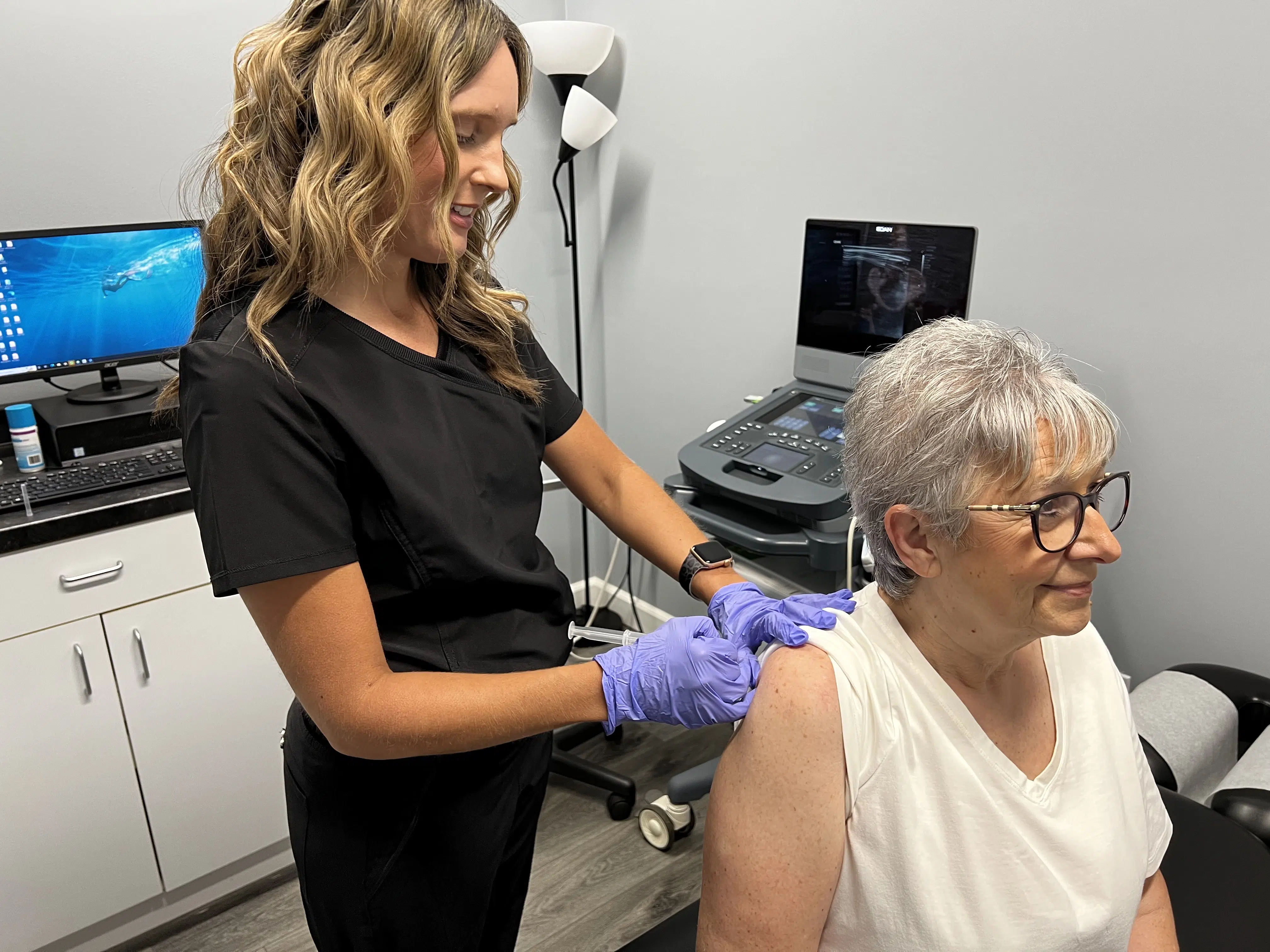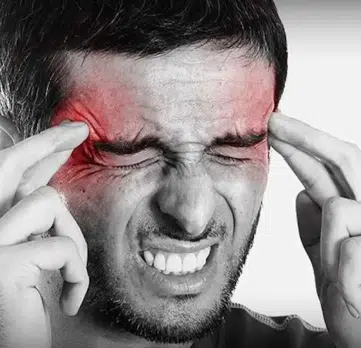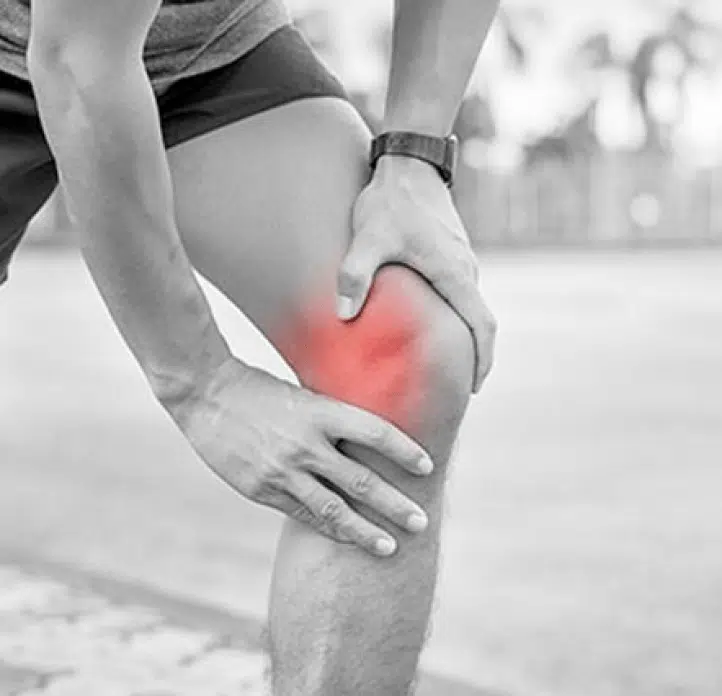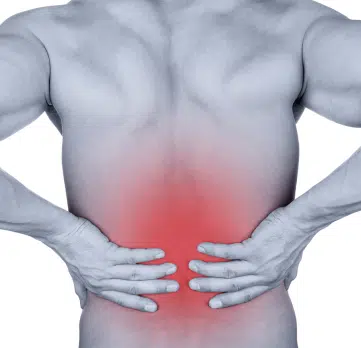Oak Brook Medical Group
Pinched nerve treatment in Oak Brook, IL
Your general stiffness, neck pain, tingling arms, and aching back may be the result of a pinched nerve. The nerves in your spinal canal and elsewhere can become compressed when the surrounding tissue is inflamed or injured, leading to a range of uncomfortable and sometimes painful symptoms. With proper rest and care at home, most pinched nerves will heal on their own. However, when symptoms worsen and the compressed nerves do not heal within a few days, you should seek treatment from expert care providers in order to avoid permanent nerve damage.
Book Online
630-317-7478
Pinched nerve treatment in Oak Brook, IL
Your general stiffness, neck pain, tingling arms, and aching back may be the result of a pinched nerve. The nerves in your spinal canal and elsewhere can become compressed when the surrounding tissue is inflamed or injured, leading to a range of uncomfortable and sometimes painful symptoms. With proper rest and care at home, most pinched nerves will heal on their own. However, when symptoms worsen and the compressed nerves do not heal within a few days, you should seek treatment from expert care providers in order to avoid permanent nerve damage.

Pinched Nerve
Nerves extend from the brain and spinal cord, sending messages to the body’s organs, extremities, and muscles. When nerves become compressed, their signals can be disrupted, leading to various symptoms including pain and discomfort. Pinched nerves often occur in the neck and lower back, although they can happen anywhere in the body. If you’re experiencing the symptoms of a pinched nerve, it’s important to get checked out by a pinched nerve specialist at Oak Brook Medical Group.
What Is a Pinched Nerve?
A pinched nerve or compressed nerve is caused by pressure from the surrounding tissue. The pressure can come from inflammation, a herniated disc, bone spurs, or a muscle strain.
Pinched nerves usually occur in the cervical spine or neck (cervical radiculopathy), lower back (lumbar radiculopathy), or in the hand, elbow, and wrist (carpal tunnel syndrome). Symptoms of a pinched nerve can range from mild to severe, depending on the location and level of nerve compression.
A pinched nerve can also happen because of the following:
- Repetitive motion tasks
- Sudden injury or accidents
- Extra weight gain (obesity or pregnancy)
- Diabetes
- Aging

When Do I Need a Pinched Nerve Specialist?
Symptoms that indicate you may need pinched nerve treatment are:
- Sharp, stinging, burning pain
- Pain that radiates out
- Numbness
- Tingling sensation (like when hand “falls asleep”)
- Weakness

What Type of Pinched Nerve Treatment Is Available?
If inflammation is the cause of the pinched nerve, reducing the swelling with ice and nonsteroidal anti-inflammatory drugs (NSAIDs) may be enough to ease the compression of the nerve. If a herniated disc, broken bone, or torn ligament is pressing on your spinal nerve, it may require immobilization like a cast or brace and sessions with a physical therapist.
Pinched Nerve Treatment Through Chiropractic Care
Treating a pinched nerve with chiropractic care is a safe and non-invasive option that can provide relief from nerve pain. Chiropractic adjustments to the spine can help restore joint mobility and reduce nerve root compression. Adjustments can also improve posture and provide muscle relaxation, allowing the nerve to move freely.
In more severe cases, small adjustments done over time, in combination with physical therapy, icing, rest, and possibly anti-inflammatories, can help relieve pain and ease the compression of soft tissues surrounding the pinched nerve.
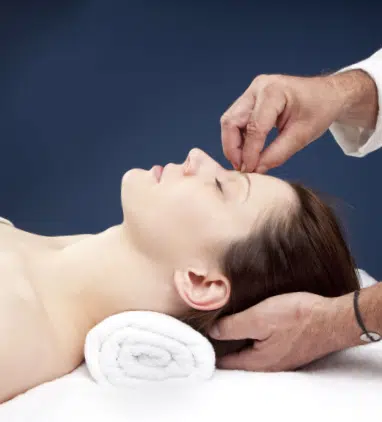
Contact Oak Brook
Stop living with pain. Contact Oak Brook Medical Group today to set up an appointment for pinched nerve treatment from one of our pinched nerve specialists.
Pinched Nerve Q & A
What is a pinched nerve?
Essentially, a pinched nerve is when pressure is applied to a nerve, causing pain, numbness and tingling in the surrounding area. Though almost any nerve in the body can be susceptible to this condition, it is most common in the neck and back. Usually, pressure occurs because of a disc herniation, but other causes like excessive weight gain, pregnancy, and certain diseases can also cause a pinched nerve to occur.
What are the symptoms of a pinched nerve?
When pressure is applied to a nerve, many patients describe the initial pain as numbness or a tingling sensation. Pain can follow as more pressure is continuously applied to the nerve. Conditions like carpal tunnel, sciatica, and neck pain can be the result of a pinched nerve. If you find that your quality of life has decreased because you are always trying to find measures to rid yourself of the pain, then it is time to see a medical professional.
How do chiropractors help with a pinched nerve?
The chiropractors at Oak Brook Medical Group specialize in diagnosing and treating the entire musculoskeletal system, including the spine, nerves, and joints. During a consultation, your chiropractor will discuss your symptoms, medical history, and lifestyle to develop the best treatment plan for you.
If your condition is determined to be a pinched nerve, your chiropractor will perform a physical examination and may use imaging tests, such as X-rays, to locate the source of your pain. Once the source is identified, the chiropractor will use spinal manipulation and other manual therapies to relieve pressure on the nerve and reduce inflammation.
The typical treatment for a pinched nerve includes:
- Spinal manipulation
- Stretching
- Therapeutic massage
- Heat and cold therapy
- Electrical stimulation
- Acupuncture
- Inversion therapy
- Nutritional counseling
Your chiropractor may also suggest lifestyle modifications, such as avoiding activities that cause pain and incorporating exercise into your daily routine.
How can pinched nerves be prevented?
The best way to prevent pinched nerves is to;
- Maintain a healthy weight
- Practice proper posture
- Exercise regularly
- Avoid repetitive motions
- Stretch daily
- Wear supportive, comfortable shoes
How long does a pinched nerve take to heal?
The amount of time it takes to heal a pinched nerve depends on the patient’s medical condition and the injury’s severity. In some cases, a pinched nerve can heal in a month.
In other cases, a regular chiropractic care program, physical therapy, massage therapy, and other treatments may be necessary to relieve symptoms of a pinched nerve and restore a full range of motion.
What happens if you let a pinched nerve go untreated?
The symptoms of a pinched nerve can become worse if it is left untreated. The longer the nerve remains compressed, the more severe the symptoms can become, including numbness and tingling in the affected area, muscle weakness, and even paralysis.
Early diagnosis and treatment are key to preventing further complications. If you experience any of the symptoms of a pinched nerve, it is best to seek medical attention from Oak Brook Medical Group as soon as possible.
What should you not do with a pinched nerve in your neck?
It is recommended to avoid activities that can worsen symptoms of a pinched nerve, such as lifting heavy objects, sleeping on your stomach, and sitting for long periods. If you have a pinched nerve in your neck, you should also avoid any sudden movements of the head and neck.
Many factors can cause a pinched nerve, so it is always best to seek professional medical advice from the team of providers at Oak Brook Medical Group to determine the right course of treatment for you.
What can I do to fix the issue?
Sometimes, pinched nerves work themselves out as inflammation goes down, but if you have a herniated disc, then the solution may not be as simple as waiting it out. You can try home remedies to reduce the amount of pain you feel, but you may find that they don’t always work. The best solution for you is to see a professional natural pain management specialist who can help you discover new treatments to aid in reducing your pain.
Can a chiropractor help me feel less pain?
Your chiropractor at Oak Brook Medical Group is one of the expert medical professionals who can help you manage the pain you feel from a pinched nerve. If the issue is a herniated disc, the chiropractor may use a series of adjustments to realign that area of your spine. Adjustments will take the pressure off of the nerve, which can relieve you of pain.



